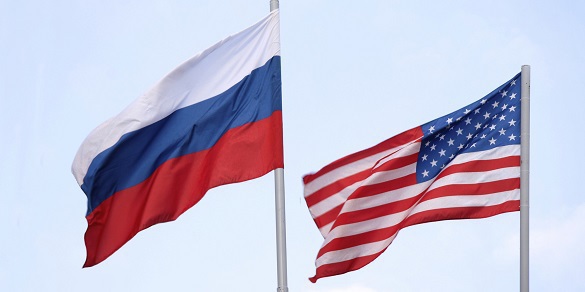Trump's national security strategy sheds no light into the dark tunnel of US-Russian relationship
What place will Russia have in the new national security strategy of the United States, which US President Donald Trump is presenting on December 18?

President of the United States presents the national security strategy every year. The practice is conducted to demonstrate the ability of the United States to identify global challenges and confront them, but the document does not appear as often as it should, though. Previous President Barack Obama represented the strategy in May 2015, and before that - in 2010. Accordingly, Donald Trump will present an updated document 18 months after Obama's strategy.
For the time being, one may conclude that there have been no fundamental changes made in relation to Russia, except for the fact that the USA, as the document states, does not seek to impose its way of life on other countries.
A representative of the US administration explained that American principles work for the countries that want to follow and accept them, but it is up for them to make the choice, the official stated.
Does it mean that Washington refuses to "promote democracy" as one of the main directions of its foreign policy? In fact, interference in affairs of other states is explained with the need to defend democratic principles, which is equivalent to American principles, as the US official said.
As long as Russia stands on the eve of the presidential election, the refusal of the US administration to "promote democracy" would be a sign of Washington's intention not to interfere in the Russian presidential election. Yet, official statements may very often mean nothing at all.
The updated strategy designates three major groups of challenges to the United States." The first includes "revisionist powers" that purport to seek a world order contrary to American "values and interests." The second group includes rogue regimes that disseminate terror, threaten their neighbours and aim to obtain weapons of mass destruction, destabilising important regions (Iran and North Korea). The third group includes transnational terror organisations.
As for the term "revisionist powers," the US official said that these are the powers that seek to change the status quo. "Most people believe that Russia's invasion of Ukraine and Georgia has changed the status quo in Europe, while China also tries to change the status quo by building islands in the South China Sea," the official said.
Paradoxically, the White House believe that the relationship between Russia and the United States is now better than it was a few months ago. Donald Trump supposedly concentrates on finding areas of cooperation where they can be found, while remaining vigilant in protecting US interests, the US official said.
The statement sounds too optimistic against the backdrop of the hysteria about "the Russian trace" and "unprecedented sanctions" that the US is to impose on Russia in February 2018.
Putin's Sunday call to Trump, when the Russian president called his US counterpart to express his gratitude for information about the terrorist cell in St. Petersburg, was indeed a proof of effective cooperation between Russia and the United States. At the same time, it was an illustration of what the two countries could have achieved, if they had toned down contradictions.
Meanwhile, Russia's role in the updated strategy is pretty much the same as it was in the strategy of Obama's last years as POTUS. In a nutshell, the relationship between Russia and the United States of America remains the same, and there is no light at the end of the tunnel.
Oleg Artyukov
Pravda.Ru
Read article on the Russian version of Pravda.Ru
Subscribe to Pravda.Ru Telegram channel, Facebook, RSS!


